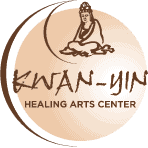by Dr. Sara Hart, ND, LAc, LMT
The noise of rumbling and grumbling guts can be quite a disconcerting experience. Was it something I ate? Montezuma's revenge? Or is it normal? These are all questions pondered while trying to pretend it's really the dog's belly that everyone is uncomfortably hearing.
Our bodies are made up of more microorganisms than our own human cells. These microflora exist as symbiotic support to our organ systems or as pathology, depending upon the environment. Just like the tree depends on microflora to accompany the minerals from the soil into the roots, the microflora in our bodies play an imperative role in our overall health.
When we are born, we establish our microflora from everything we contact. The birth canal serves as our initial inoculation. The breast, the dust, and all the things that babies put into their mouths help form our internal terrain. The content of this exposure has changed dramatically over the past 100 years, as we have modified our lives to be further removed from nature. In the past, dirt from the earth would track into the house on our feet and settle on the floors where babies were crawling. Now, it's petroleum products from the roads and sidewalks, or chemicals from the lawns. Rather than playing with wooden toys and natural fibers, children are often exposed to synthetic materials made up of innumerable chemical components that do little to benefit physiology…and often impair it.
The microflora in our bodies serve to protect us or to harm us. The analogy of a tree in a forest can illustrate how the microflora either support our growth or support our degradation to make room for the next tree. If we consider a forest that has become boggy, with less sunlight and more moisture, the flora will change to better fit this environment. In this regard, any pathogen is also serving a role in physiology.
If a person accumulates toxins in her body, the candida species may become overgrown to bind the toxins and prevent them from circulating freely and causing damage. When pathogenic bacterial colonies develop in the body, a fever may result, which will increase circulation and enhance gene transcription to make stronger cells.
How do we maintain health amongst our trillions of microbial companions? Aside from being properly inoculated with beneficial and natural microbes in our early life, the microbial balance is something that can be supported with everyday living. Traditional cultures regularly consumed foods that were rich in microbes. Foods fresh from the earth were a consistent source of microbes. Preserving foods with pickling and fermentation methods enhances the beneficial microbes that are consumed. Eating foods that are made with starter cultures such as sourdough bread, yogurt, and kefir is another way of adding beneficial microbes to the body.
In our modern world, the produce from the grocery store and pasteurized foods limit the quantity and quality of microbes that we ingest. This, in addition to the over-use of anti-microbial substances (such as soaps) can impair our microbial balance. The imbalance can make us even more vulnerable to pathogenic microbes, and the deficit of "good" microflora weakens the defense mechanisms of our overall body.
Just as every gardener knows the soil must be tended to on a regular basis, every human should also know that our systems need regular support. Eating the freshest, organic foods on a daily basis, and choosing natural materials for our homes and clothing whenever we can (especially with small children) are important first steps. Secondly, routinely consuming fermented foods, yogurt, and kefir can greatly support our health. These steps provide an excellent, broad spectrum of microbes that each perform a variety of different functions in the body.
Supporting digestion with powdered or encapsulated probiotic material (microflora) has become commonplace to replace what is often lacking in modern diets. Lactobacillus acidophilus is one of many organisms found to exist as a predominantly "friendly bacteria" in our bodies, so this is supplemented to enhance microbial colonies. Research has demonstrated supplementation with probiotics can assist inhealing the gut of a myriad of digestive diseases, support the immune system, reduce allergy symptoms, improve eczema, and so on. One study demonstrated antibiotics are actually more effective when used in conjunction with probiotics.
While probiotics can be miraculous for many, the constant or inappropriate use of them can cause problems, as well. As always with health, an individualized approach is best. Regarding microbes, the entirety of the microbial environment must also be considered. If the balance is already off, adding more of one thing to a system may result in an overgrowth of that particular organism. If the body has too much dampness, too much heat, too much acidity, or any other element of imbalance, then there may be many more pieces to the puzzle of healing than just adding or removing a single piece.
Feel free to give me a call at the clinic if you have any questions. Everyone at the clinic, including myself, offer free 15-minute consults. Just call the front desk at (503) 701-8766 and our office managers will help get you scheduled.
With warmest blessings,
Dr. Sara Hart
Kwan-Yin Healing Arts Center, 2330 NW Flanders Suite #101, Portland, OR 97210, USA
To unsubscribe or change subscriber options visit:
https://www.aweber.com/z/r/?7ByszJwMtMyc7MzMbAwstGa0LMzMzBycbA==
